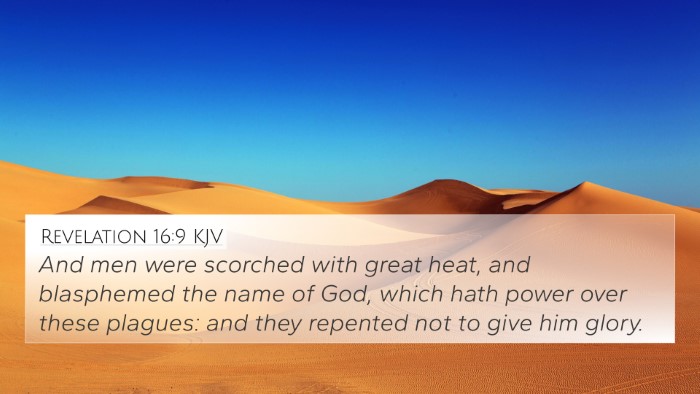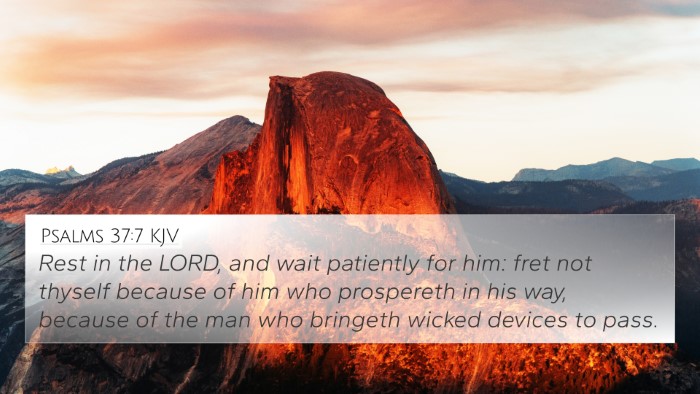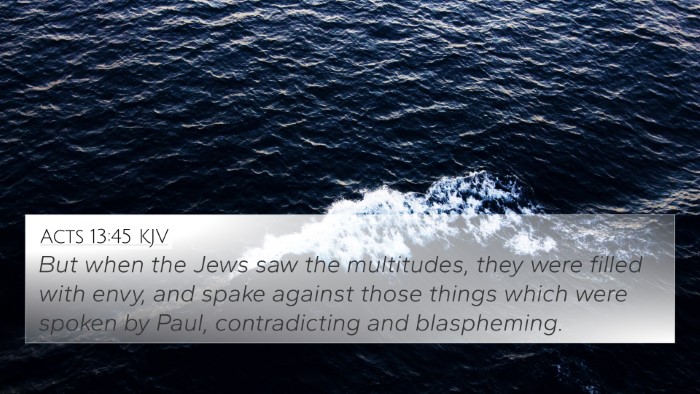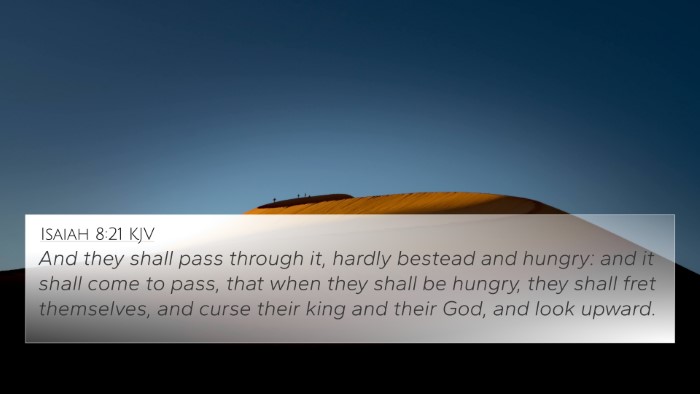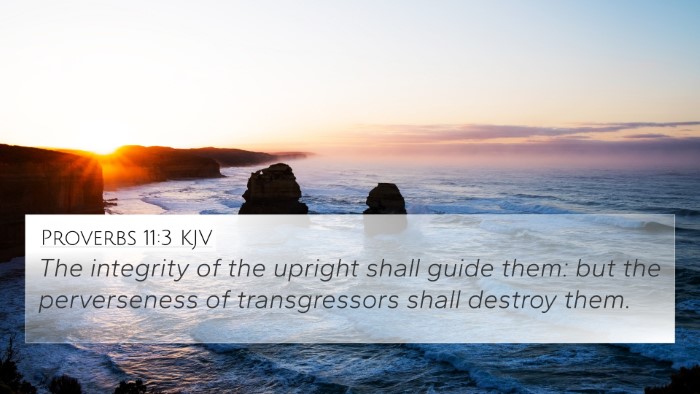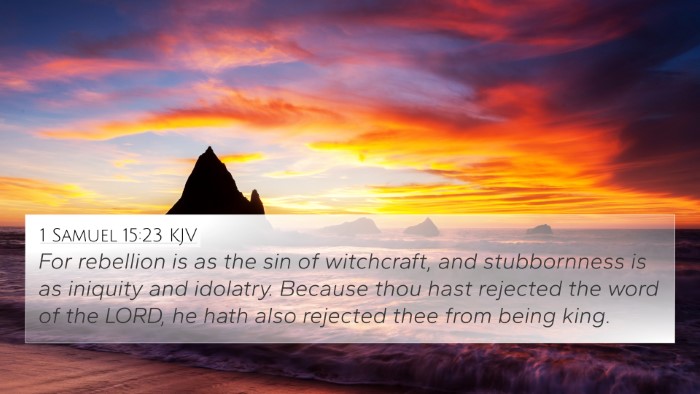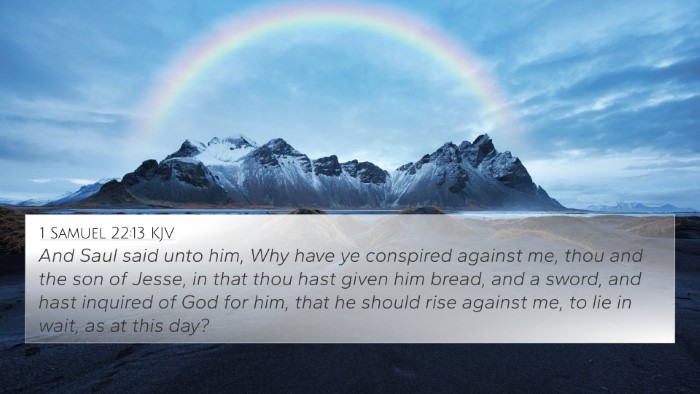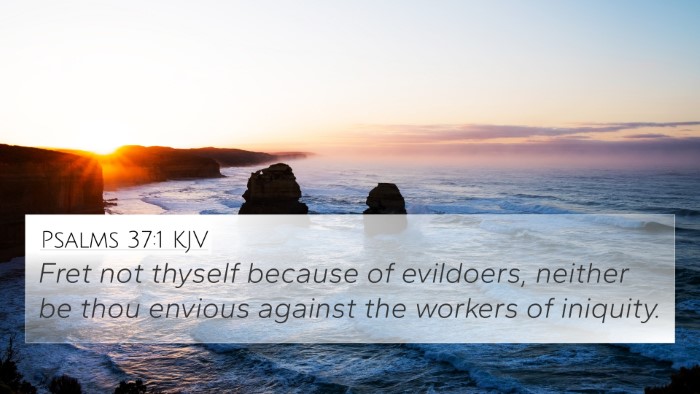Understanding Proverbs 19:3
The verse Proverbs 19:3 states: "The foolishness of man perverteth his way: and his heart fretteth against the LORD." This passage highlights the consequences of human folly and its ramifications in one’s relationship with God.
Summary of Insights
Proverbs 19:3 captures a profound truth about human nature and its tendency towards self-sabotage. Through a combination of insights from esteemed public domain commentaries, we can glean a deeper understanding of this verse.
Matthew Henry's Commentary
Matthew Henry offers a thorough exploration of this verse, indicating that the "foolishness of man" signifies his own misguided actions leading to adverse consequences. Henry elucidates that when one is foolish, they invariably blame their misfortunes on external factors, including God, illustrating the disconnect between our choices and divine providence.
Albert Barnes' Notes
Albert Barnes expands this interpretation by emphasizing the relationship between human folly and divine sovereignty. He argues that the foolish wander away from righteousness, and as they encounter trials, they typically resort to blaming God. This reflects a heart that has turned from understanding the divine purpose in their life.
Adam Clarke's Commentary
Adam Clarke further elucidates that the human heart is prone to discontentment when it fails. Clarke suggests that understanding folly is crucial, as it leads one to recognize their need for divine wisdom. He notes that while a foolish person may recognize their way is wrong, they often struggle to accept the necessary changes.
Bible Verse Cross-References
To enhance our understanding of Proverbs 19:3, we can identify several relevant Bible verses that relate to its themes:
- Proverbs 1:7 - "The fear of the LORD is the beginning of knowledge: but fools despise wisdom and instruction."
- Isaiah 29:16 - "Surely your turning of things upside down shall be esteemed as the potter's clay."
- Proverbs 12:15 - "The way of a fool is right in his own eyes: but he that hearkeneth unto counsel is wise."
- Romans 1:21 - "Because that, when they knew God, they glorified him not as God, neither were thankful; but became vain in their imaginations, and their foolish heart was darkened."
- James 1:19-20 - "Wherefore, my beloved brethren, let every man be swift to hear, slow to speak, slow to wrath: For the wrath of man worketh not the righteousness of God."
- Proverbs 28:26 - "He that trusteth in his own heart is a fool: but whoso walketh wisely, he shall be delivered."
- Galatians 6:7 - "Be not deceived; God is not mocked: for whatsoever a man soweth, that shall he also reap."
Thematic Bible Verse Connections
The connections between Bible verses reveal a thematic continuity that enhances our understanding of human foolishness and its consequences:
- Verses emphasize the importance of seeking God’s wisdom (James 1:5, Proverbs 3:5-6).
- Many verses caution against the prideful inclination to rely on one’s own understanding (Proverbs 3:7, Jeremiah 17:9).
- As illustrated in Proverbs, the folly often leads to a hardening of hearts and a turning away from God (Hebrews 3:12-13).
Conclusion
In conclusion, Proverbs 19:3 serves as a stark reminder of the dangers of folly. When we fail to acknowledge our own role in our troubles, we may find ourselves fretting against God rather than seeking His wisdom. Through the interconnectedness of Scripture, we can gain a comprehensive understanding of divine wisdom and the human condition.
Tools for Bible Cross-Referencing
For those interested in exploring these connections further, various tools for Bible cross-referencing are available:
- Bible Concordance
- Bible Cross-reference Guide
- Cross-reference Bible Study Tools
- Bible Reference Resources
- Comprehensive Bible Cross-reference Materials
How to Use Bible Cross-References
Understanding how to effectively use cross-references can enhance your study of Scripture:
- Identify key themes within Bible verses.
- Look for verses that share similar messages or teachings.
- Utilize cross-reference systems provided in many study Bibles.
- Consider thematic connections between Old and New Testament teachings.



